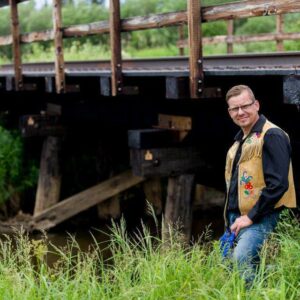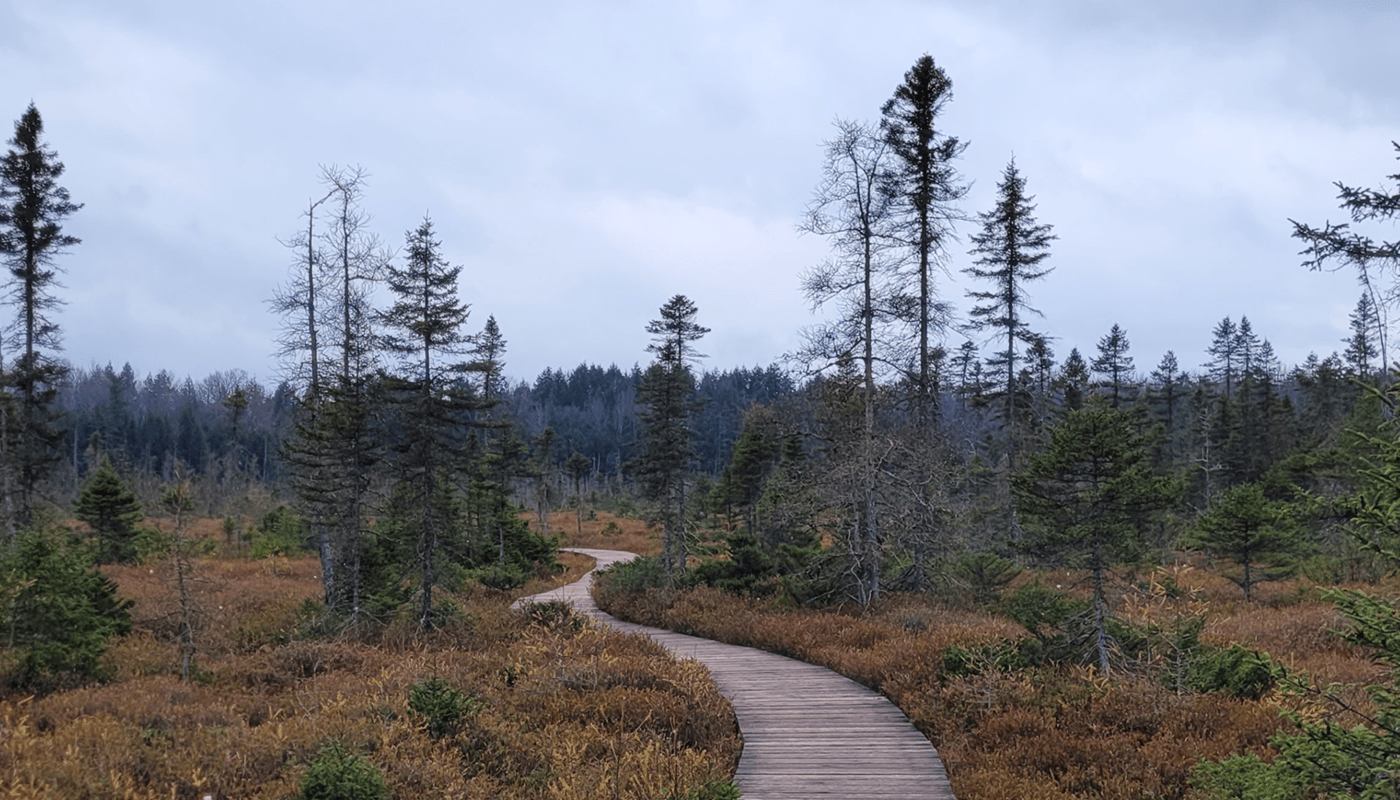Energy Innovation Brief
Issue 41 | June 2024
The Indigenous entrepreneur who is reshaping the energy industry

Photo of Justin Bourque by Greg Halinda Photography
“I love the industry. I love my Indigenous peoples. I love the fact that I can potentially be a catalyst to a brighter future for everybody. That’s what motivates me and gets me up in the morning.”
– Justin Bourque
Justin Bourque is someone you should know. He is one of those people who takes on so much that you can’t imagine how he has time to sleep. And who dreams so big that you can’t help getting swept up into his vision.
Justin creates partnerships between Indigenous groups and energy industry companies that foster economic reconciliation and ensure Indigenous land rights and stewardship are respected. And he has been enormously successful, helping create some of the largest equity ownership transactions between Indigenous groups and the energy industry to date.
For example, in 2021, Justin helped form the Astisiy Community Partnership, through which Suncor Energy, three First Nations, and five Métis communities acquired ownership interest in the Northern Courier Pipeline from TC Energy. He also played a key role in the creation of Athabasca Indigenous Investments, a limited partnership that saw 23 Indigenous communities in Northern Alberta acquire from Enbridge a working interest in seven major pipelines in the Athabasca oil sands. Most recently, Justin led the creation of Wâpiscânís Wâseskwan Nipiy Partnership, a consortium of 12 First Nations and Métis communities that acquired 85 per cent ownership in major oil and gas midstream infrastructure in northwestern Alberta from Tamarack Valley Energy. Justin’s role has included identifying industry partnership opportunities, connecting different Indigenous groups, coordinating financing and loan guarantees with organizations like the Alberta Indigenous Opportunities Corporation, coordinating the creation of the agreements, and helping manage the financial assets in the long term.
Living and walking in both worlds
Justin says he is able to bring these diverse groups together because he has been “living and walking in both worlds [his] whole life.” He grew up and continues to live traditionally as the third generation on his family’s trapline, exercising his harvesting rights on the land. Justin is guided by his Indigenous values, living almost entirely off the grid and passing down traditional knowledge to his community through a land-based learning program for youth. He also set up his consultancy firm, Âsokan Generational Developments, with both traditional business values and the Seven Sacred Teachings as core values. At the same time, he has deep energy sector experience, having started at age 16 as a welding apprentice and working up into leadership, project maintenance and turnaround management roles. This twinning of traditional and industry knowledge has allowed Justin to bridge the gap between Indigenous groups and industry leaders, create partnerships that bring value to everyone and bring an Indigenous perspective to the business world where it is often lacking.
For Indigenous communities these deals generate revenue, increasing their economic sovereignty and self-determination. At the same time, the communities gain greater control and influence in the management of the energy projects, shaping stewardship and land use on their territories. For energy industry companies, these agreements help them to secure true partners and to actualize their reconciliation and environmental action plans. As Justin noted:
“Indigenous communities don’t just have a future, I think they are the future of energy development.”
As Justin sees it, the current equity ownership transactions are a steppingstone in developing Indigenous communities’ assets, knowledge of industry, and relationships with industry. His long-term vision is for Indigenous communities to have sufficient capital to diversify their investments, explore higher risk projects and lead the energy transition in Canada.
Indigenous involvement growing rapidly
Justin isn’t the only one advancing Indigenous involvement in Canada’s energy future—it’s definitely a rapidly-growing area. From 2012-2023, First Nations and Métis communities acquired almost $10 billion in equity in energy and resource projects, primarily in three key areas: transmission, hydro and pipelines. And Indigenous groups are involved in nearly 200 medium-to-large and 2,000 small-scale renewable energy projects that are in operation or late-stage construction.
We at the Energy Innovation Brief are excited to see where Justin’s work goes next and how the involvement of Indigenous groups—with Justin and other passionate people leading the way—will reshape the energy sector.
In Western Canada and around the world, the energy sector is rapidly transforming to one that promises to be cleaner, greener and more efficient. Each month, the Canada West Foundation’s Energy Innovation Brief brings you stories about technology innovations happening across the industry – in oil and gas, renewables, energy storage and transmission.
The Energy Innovation Brief was written by Shreya Shah and Marla Orenstein. If you like what you see, subscribe to our mailing list and share with a friend. If you have any interesting stories for future editions, please send them to .
